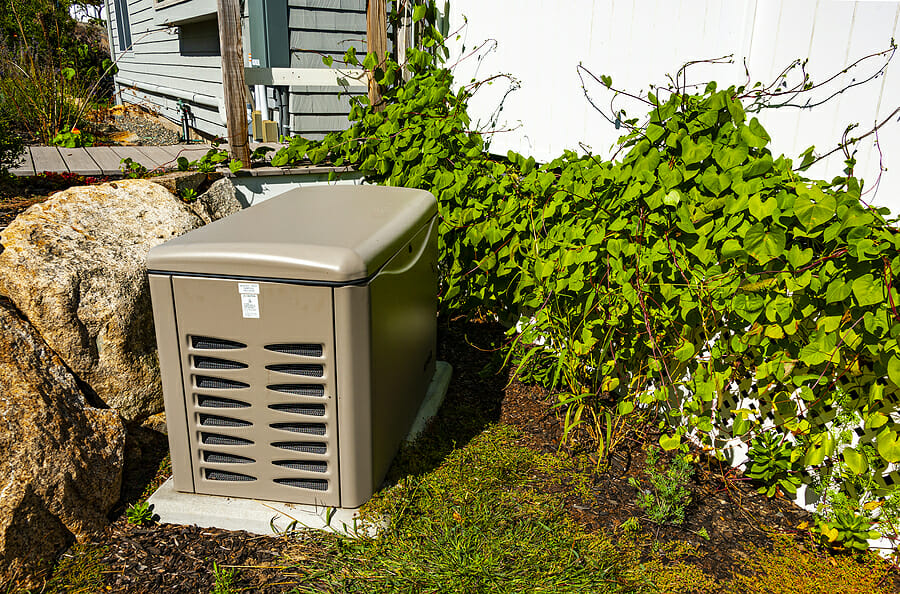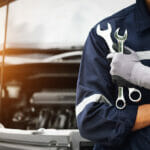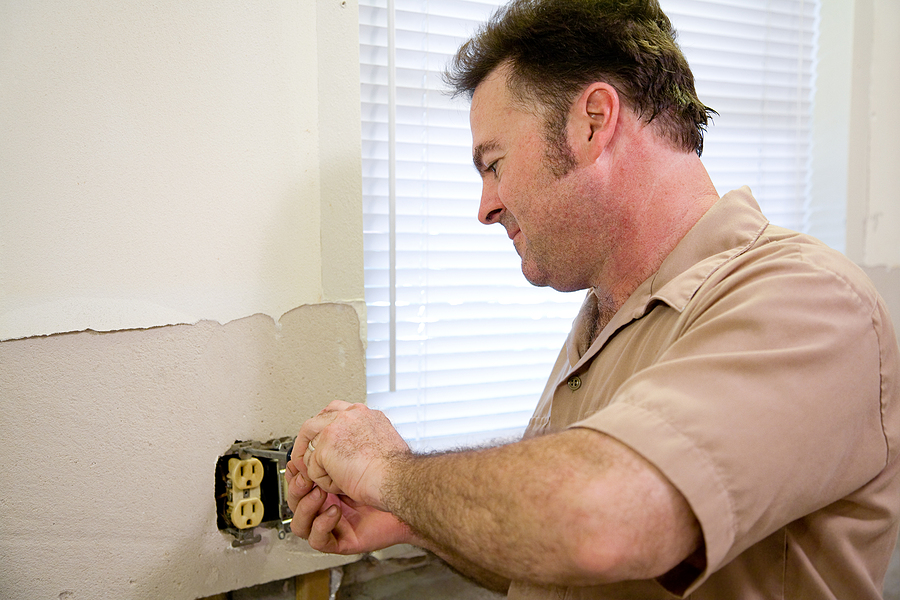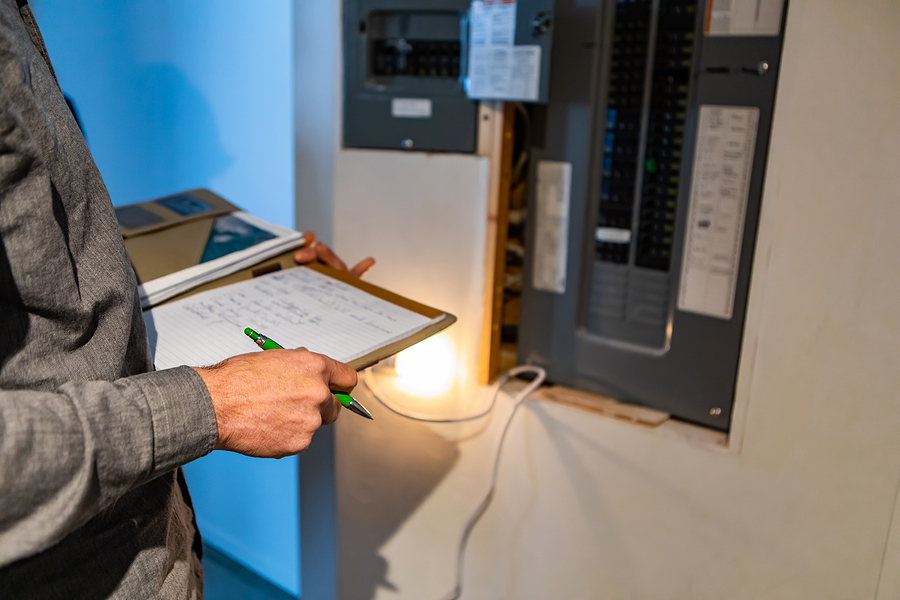Generators are essential pieces of equipment that can provide backup power during outages or can provide primary power in remote locations. However, they require regular maintenance and repair to keep them running efficiently and safely. This article will discuss the most common reasons for generator repair and provide tips on how to properly care for your generator.
Common Reasons for Generator Repair
Generator repair is often necessary to ensure the safety and efficiency of the generator. The most common reasons for generator repair include fuel contamination, engine problems, and electrical issues.
- Fuel Contamination: Fuel contamination is one of the most common causes of generator repair. If the fuel tank contains debris or if the fuel is contaminated with water, the engine can become clogged and the generator will not run properly. Using the wrong type of fuel in a generator can also lead to breakdowns. Improper fuel can cause engine damage, as well as other malfunctions. It is important to use the correct type of fuel for the generator in order to ensure optimal performance and reduce the risk of breakdowns.
- Battery Issues: Battery issues are also a common cause of generator repairs. Batteries can fail due to age, misuse, or a lack of maintenance. To prevent battery issues, it is important to check the battery regularly and replace any that show signs of wear or damage.
- Electrical Component Failures: Electrical component failures can also lead to generator repairs. Common electrical component failures include wiring harnesses, solenoids, and relays. These can be caused by corrosion, improper installation, and wear and tear over time. To prevent these issues, it is important to check electrical components regularly and replace any that show signs of wear or damage.
- Lack of Maintenance: One of the most common reasons for generator repair is a lack of regular maintenance. Without regular maintenance, generators can develop issues such as clogged fuel filters, fouled spark plugs, and worn out belts and hoses. Regular maintenance can prevent these issues and keep the generator running smoothly.
- Faulty Parts: Another common reason for generator repair is faulty parts. Generators are complex machines, and even the smallest component can cause serious problems if it is faulty. Checking the parts of the generator regularly and replacing any faulty components can help keep the generator running smoothly.
- Corrosion and Moisture: Corrosion and moisture can also cause generator repair. Corrosion can cause rust and damage to the generator’s components, while moisture can cause electrical shorts and other issues. Regularly checking the generator for any signs of corrosion or moisture and addressing them promptly can help prevent generator repair.
- Overheating: Overheating is another common problem that can lead to generator repair. Overheating is often caused by a lack of airflow around the generator or a faulty cooling system. Making sure that the generator is properly ventilated and that the cooling system is functioning properly can help prevent overheating and generator repair.
- Improper Usage: Improper usage of a generator can also lead to breakdowns. This includes overloading the generator, running it at too high of a speed, or running it for too long. Overloading the generator can cause it to overheat, which can lead to breakdowns and even engine failure. Running the generator at too high of a speed can cause the generator to vibrate excessively, leading to wear and tear on the engine and other components. Finally, running the generator for too long can cause it to become overworked, leading to breakdowns.
Tips to take care of your generator
Having a generator is a great way to provide backup power during an outage or to provide power to a remote location. However, with great reliability comes the responsibility of proper maintenance. Knowing how to take care of your generator is essential to ensure that it runs smoothly and safely. Below are tips on how to properly maintain your generator.
Understanding Your Generator
Before attempting to maintain or repair your generator, it is important to understand how it works and the components that make it up. Generators typically consist of an engine, alternator, fuel system, electrical system, and cooling system. It is important to understand each of these components and how they interact with one another in order to properly maintain your generator.
General Maintenance
General maintenance is an important part of keeping your generator in good working order. This includes checking the oil level, changing the oil, and replacing the air filter. Checking the oil level is an important step in maintaining your generator. If the oil level is too low, the engine will not be able to operate properly. The oil should be changed every 50 to 100 hours of use, or at least once a year. The air filter should also be replaced regularly. A dirty air filter will reduce the efficiency of the engine and may cause damage if not replaced.
Regular Check-Ups: Regular maintenance and check-ups are one of the most effective ways to prevent generator repair. By having a certified technician inspect the generator regularly, any problems can be caught and corrected before they become a major issue. This can help reduce the need for repair and ensure that the generator is running at peak efficiency.
Fuel System Maintenance
Maintaining the fuel system is essential to ensure your generator runs smoothly. This includes checking the fuel tank, fuel lines, and fuel filter. The fuel tank should be inspected regularly for signs of rust or corrosion. If these signs are present, the tank should be replaced. The fuel lines should be checked for any signs of leakage or damage. The fuel filter should also be inspected and changed regularly. A clogged fuel filter can reduce the engine’s efficiency and cause damage if not replaced.
Cooling System Maintenance
The cooling system of a generator is responsible for keeping the engine running at the correct temperature. This includes checking the coolant level, checking for leaks, and inspecting the cooling fan. The coolant level should be checked regularly to ensure it is at the correct level. If the coolant level is too low, the engine may overheat and cause damage. The cooling fan should also be inspected regularly for signs of wear or damage. If the fan is damaged, it should be replaced.
Electrical System Maintenance
The electrical system is responsible for providing power to the generator. This includes checking the starter, alternator, spark plugs, and wiring. The starter should be checked to ensure it is working properly. The alternator should be checked for signs of wear or damage. The spark plugs should be checked and replaced if necessary. The wiring should also be inspected for any signs of corrosion or damage. If any of these components are damaged, they should be replaced.
Generator Storage
Proper storage of a generator is essential to ensure it is in good working order. This includes cleaning the generator before storage, storing in a dry location, and using a cover. The generator should be cleaned before storage to prevent the buildup of dirt and debris. The generator should also be stored in a dry location to prevent rust and corrosion. A cover should also be used to protect the generator from the elements.
It is also important to follow the manufacturer’s guidelines for proper usage of the generator. This includes running the generator at the correct speed, not overloading it, and not running it for too long.
Replacing Parts
In addition to regular maintenance, you may also need to replace parts of your generator from time to time. This includes things like the oil, fuel filter, air filter, and spark plugs. If you notice any unusual behavior from your generator, it’s a good idea to check these parts to make sure they’re in good condition. If any of them are worn or damaged, they should be replaced immediately.
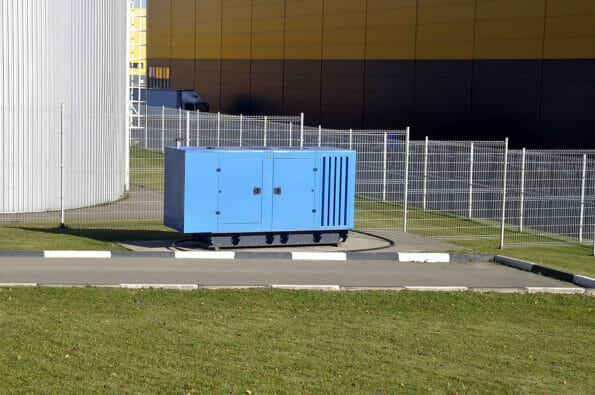
Troubleshooting
If your generator is not working properly, there are a few steps you can take to try and troubleshoot the problem. First, check the fuel system as discussed above. If the fuel system is in good condition, then you should check the electrical system. Make sure all of the wiring and components are in good condition. Finally, if all else fails, you may need to take your generator to a professional for repair or replacement.
Repair Considerations
If you need to have your generator repaired, it is important to hire a professional to do the job. Hiring a professional like https://www.bellwoodrewinds.co.uk/generator-repairs ensures that the repair is done properly, and that the necessary parts are replaced or repaired. Additionally, a professional will be able to provide advice on how to maintain the generator in the future, as well as answer any questions you may have.
By following the steps outlined above, you can ensure that your generator runs reliably and safely. Regular maintenance is essential for keeping your generator running properly, and you should also inspect the fuel and electrical systems periodically. Additionally, you may need to replace parts from time to time. Finally, if all else fails, you may need to take your generator to a professional for repair or replacement. With proper care and maintenance, you can keep your generator running smoothly and safely for years to come.
Image Source: BigStockPhoto.com (Licensed)
Related Categories: Home, Reviews



